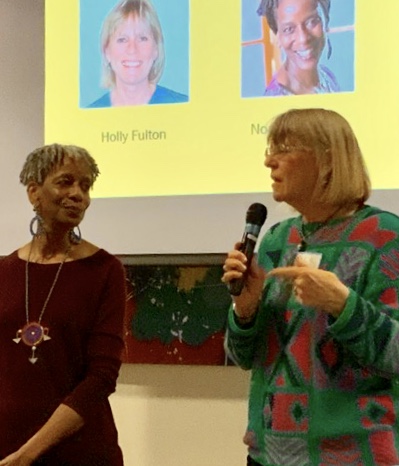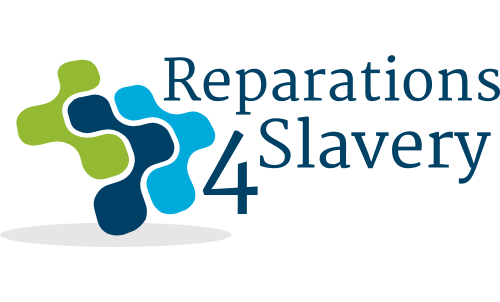Interview with Norma Johnson & Holly Fulton

Holly Fulton is a racial justice advocate and facilitator in Denver, CO. She has written a series of monologues on the topic of her family history and racial justice.
Norma Johnson is a poet, storyteller, racial justice advocate and facilitator in Boulder, CO.
Together, they have created a unique workshop that encourages people to tell their histories around race.
R4S: Norma and Holly, you have created a racial justice workshop with a twist – you interweave Holly’s monologues with Norma’s poetry and encourage your audience to begin writing their own racial justice themed stories. How did you create this new workshop format?
Norma: Essentially, Holly and I have found a way to speak to each other through a creative form; people find it very powerful. You could say it’s a white story meeting a black story; both are uniquely American stories. We've found that stories are a very potent vehicle for social change. Everybody has a story; to explore race through our personal stories is very powerful. And, that's what we offer in this workshop.
Holly: Exactly. I remember performing a part of my monologue for Norma and asking how she felt about it. Instead of responding directly, Norma read a poem. We were both taken aback by the experience and wanted to share it with an audience.
R4S: How has collaborating changed the nature of your work?
Norma: To me, the creative work has become a lot richer. Rather than reading my poetry to an audience, where the communication is just one way – Holly and I weave a conversation, back and forth. Whatever your race, whether you’re black or white, you can identify with some element in the story, and be surprised by another. This juxtaposition seems to inspire people to dive into their own stories from there, to enter the conversation on race in a new way.
Holly: It’s really a form of call and response, with Norma and me moving up and down the stage responding to each other, emotionally, physically.
Norma: Exactly. Call and response forms are steeped in African tradition. Someone calls out a song or a statement or a welcoming and the community responds to that, gives an answer. That's what I feel my poems are to Holly’s monologues.
R4S: So how does storytelling differ from other types of racial justice and racial healing work, like lectures and workshops?
Norma: It’s uniquely personal. I believe we think in stories. We hold stories, we act from stories. Our behaviors are the results of the stories we've accumulated over a lifetime.
Holly: Norma uses this word ‘dropping’ a lot, the idea that to connect in a creative way, people need to drop from head to heart to gut. To the space of feeling rather than thinking.
R4S: Are there particular themes that come up in white people’s stories?
Holly: Guilt and shame are common themes. There is an interesting distinction between the feeling shame on me and the feeling shame on all of us that seems to be important to explore.
Norma: Yes. Don’t put a Band-Aid on feelings of shame and guilt. Shame and guilt are there for a reason. They’re trying to tell you something - not that you're a bad person, but that there's a bunch of feeling locked up in there.
R4S: How would you advise readers to apply a creative approach to their own racial justice journey?
Holly: Look for your own way; theatrical, performance, music, whatever your medium may be. Then, bring black people and white people together, build a creative work together. Create an opening for dialog.
Norma: Small bites, everything in small bites. I really would encourage people to remember - we don't have to be anything except ourselves. The combination of all the things that we are and all the experiences we've had and the way that we think, particularly our gifts, talents and skills - these are the things that are going to take us to our stories, reveal to us the answers. We just need to listen.
